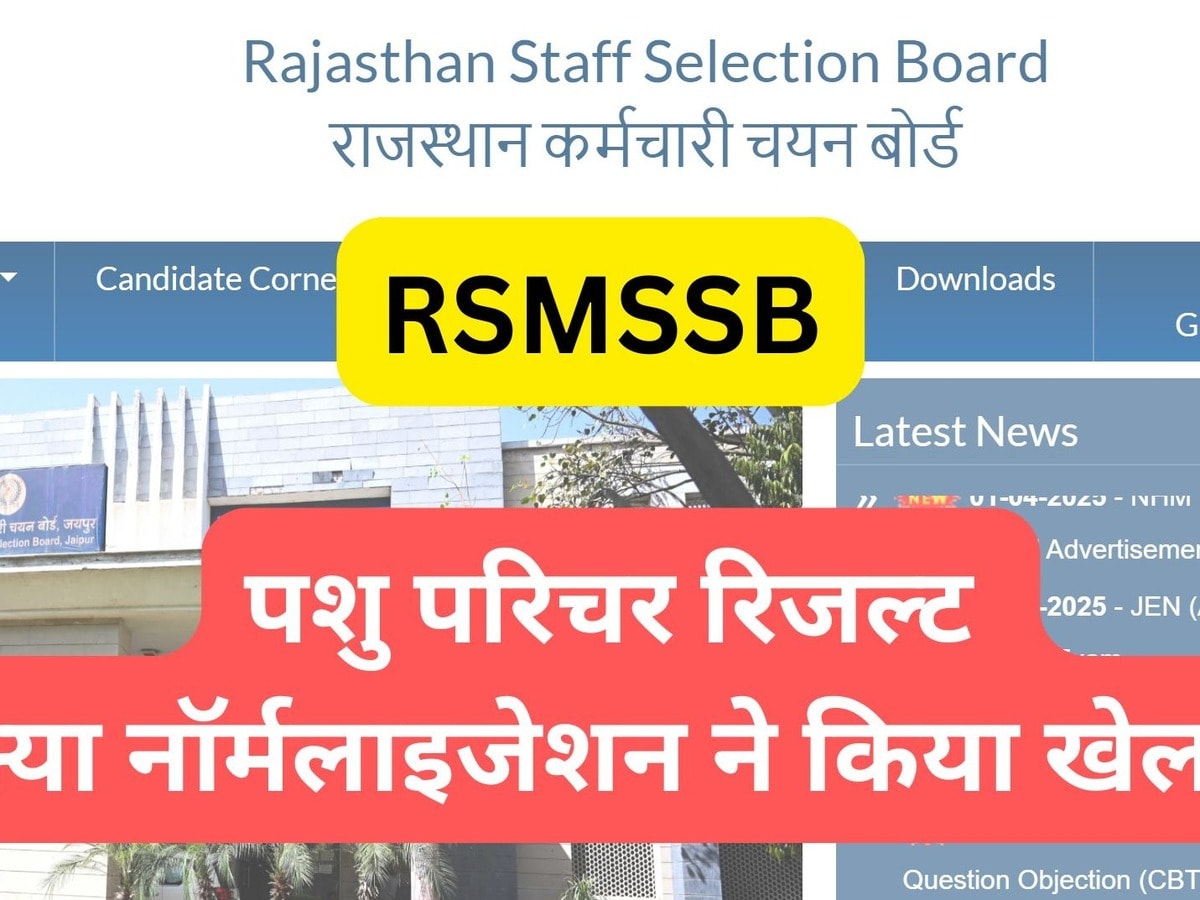Introduction to RSMSSB Pashu Parichar Result
The RSMSSB Pashu Parichar (Animal Caretaker) recruitment exam has generated significant interest among job seekers in Rajasthan. The Rajasthan Staff Selection Board (RSMSSB) is responsible for conducting this examination, which assesses candidates’ qualifications for various positions in the animal husbandry sector. However, recent developments concerning the normalization and scaling methods employed by the board have sparked considerable dissatisfaction among the candidates.
Understanding the Exam and Its Importance
The Pashu Parichar exam is a crucial step for individuals seeking employment in animal care roles under the RSMSSB’s jurisdiction. It tests candidates on various skills and knowledge areas relevant to animal husbandry practices. The board’s assessment method aims to ensure a fair and transparent recruitment process; however, the implementation of normalization and scaling has faced criticism.
What is Normalization and Scaling?
Normalization and scaling are statistical methods used to adjust scores in exams to account for variations in difficulty across different test versions or sessions. While these methods are intended to create a level playing field for all candidates, they can lead to unexpected results that may frustrate test-takers. Here’s a brief overview of how they work:
| Method | Description |
|---|---|
| Normalization | Adjusts scores to eliminate differences in difficulty between different test versions. |
| Scaling | Converts raw scores into a standardized format, ensuring uniform scoring across variations. |
Candidates’ Concerns
Many candidates have expressed their concerns regarding the fairness of the normalization and scaling processes used in the RSMSSB Pashu Parichar exam. Some of the primary grievances include:
- Lack of Transparency: Candidates argue that the normalization process lacks clear guidelines, making it difficult to comprehend how their scores were determined.
- Unpredictable Outcomes: Some test-takers reported significant score disparities compared to their expectations based on their performance during the examination.
- Impact on Job Opportunities: Frustration over score adjustments has led some candidates to fear they may miss out on job opportunities, affecting their career aspirations.
Steps to Address the Concerns
In light of the dissatisfaction expressed by candidates, it is essential for RSMSSB to take proactive steps to address these concerns. Here are some possible measures:
- Increased Transparency: Providing clear documentation on how normalization and scaling work, along with examples, can help candidates understand the process better.
- Feedback Mechanism: Establishing a feedback and appeal process for candidates who feel their scores do not reflect their performance accurately could foster trust in the examination system.
- Review of Policies: Regularly reviewing and updating the normalization techniques to ensure they align with best practices in educational assessments can significantly enhance the examination’s credibility.
Conclusion
The recent backlash regarding the normalization and scaling methods used in the RSMSSB Pashu Parichar exam highlights the importance of fairness and transparency in recruitment processes. As candidates strive for opportunity in the animal husbandry sector, it is crucial for the Rajasthan Staff Selection Board to acknowledge these concerns and implement necessary changes for improved trust and satisfaction among prospective applicants. Ensuring that the recruitment process is perceived as equitable can foster a more positive relationship between the board and the candidates, ultimately benefiting the entire hiring ecosystem.

